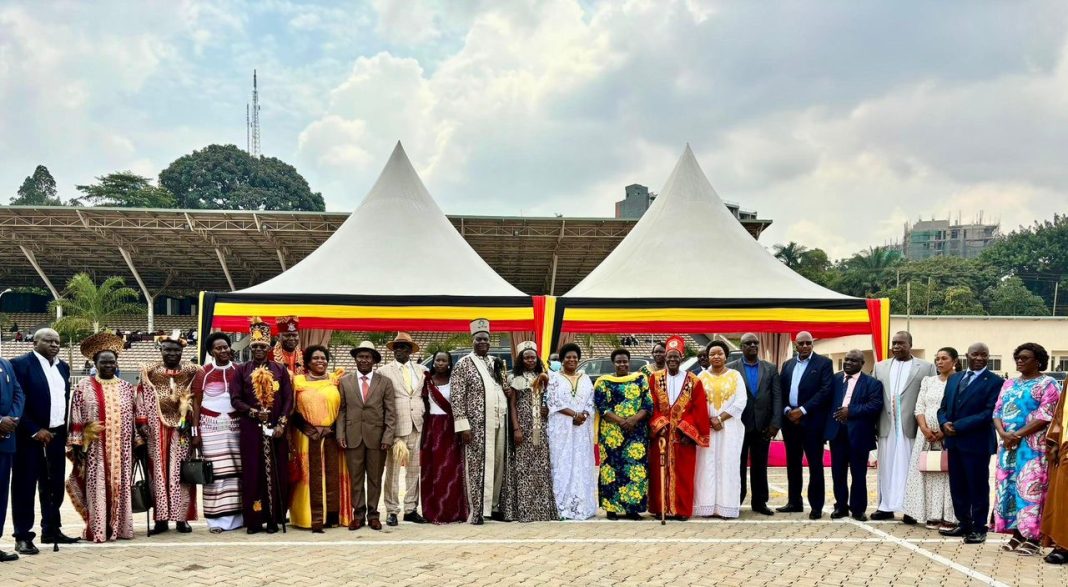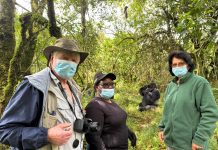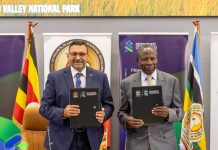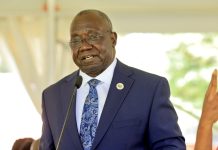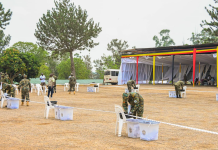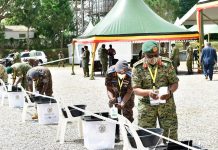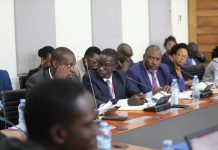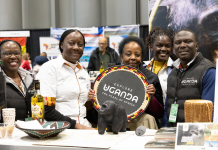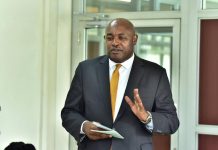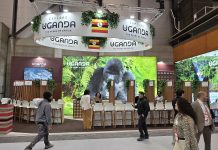By David Mwanje
In a vibrant ceremony, Uganda’s government launched the Traditional Leaders Enhancement Programme, handing over brand-new vehicles to cultural leaders to strengthen their role in fostering unity, preserving heritage, and driving development. Led by Hon. Betty Amongi, Minister of Gender, Labour and Social Development, and Permanent Secretary Mr. Aggrey Kibenge, the event was graced by the Vice President Jessica Alupo, who delivered a powerful message on behalf of President Yoweri Kaguta Museveni.
The initiative underscores the National Resistance Movement (NRM) government’s commitment to empowering cultural institutions as partners in Uganda’s socio-economic transformation.
The Vice President expressed gratitude to the Ministry for the warm welcome and congratulated cultural leaders on receiving vehicles to enhance their mobility. She shared a light-hearted anecdote about initially hesitating to attend due to political commitments but ultimately joining after Minister Amongi’s persistence. “When she called back and asked, ‘Have you finished thinking?’ I told her I would come,” Alupo said, highlighting the importance of cultural blessings. “I know we get blessings from our elders and through our cultures. Today, I am strengthened by your prayers as we prepare for tomorrow’s primaries.”
The restoration of monarchies, a cornerstone of NRM policy since 1993, was celebrated as a recognition of ancestral efforts to unite clans into powerful kingdoms like Buganda, Bunyoro, Ankole, Toro, and Busoga. “The decision to restore monarchies was to recognise the efforts of our ancestors in establishing centralised administrations that united several clans into kingdoms and chiefdoms. This unity minimised conflicts and strengthened cooperation,” the Alupo noted.
She emphasized that this unity, exemplified by Buganda’s 52 clans, mirrors the NRM’s push for national and East African integration to ensure strategic security and prosperity.
Cultural institutions were lauded for preserving Uganda’s rich heritage. “Cultural institutions were restored for their pivotal role in preserving our rich cultures and languages. Our African dialects are richer than European languages, and this heritage must be preserved,” the Vice President said.
Alupo urged leaders to use the vehicles to mobilize communities for wealth creation programs like the Parish Development Model (PDM) and Emyooga, aimed at lifting households out of poverty. “The vehicles you are receiving today will facilitate your mobilisation efforts and enable you to reach all parts of your kingdoms,” she added, encouraging leaders to promote economic empowerment.
The Vice President also highlighted President Museveni’s regional impact, noting that leaders in South Sudan, Somalia, and the DRC praise Uganda’s peace and stability. “When you speak to Presidents in South Sudan, Somalia, DRC, and beyond, they acknowledge that the peace in Uganda has positively impacted their countries,” she said. She subtly urged cultural leaders to remind their subjects of the 2026 elections, reinforcing the NRM’s inclusive development agenda. Additionally, she requested the Ministry of Gender to collaborate with the Ministry of Tourism to gazette cultural sites, preserving them for posterity.
The government’s commitment to cultural institutions, formalized in the 1995 Constitution and the 2011 Institution of Cultural and Traditional Leaders Act, balances empowerment with oversight. While the NRM has restored kingdoms to promote unity, tensions occasionally arise, as seen in the Rwenzori region’s ethnic disputes. Programs like PDM face challenges, with limited coverage in areas like Wakiso, where only 2,262 of 333,000 eligible households have benefited. Critics argue the government’s support, including vehicle handouts, serves as patronage to secure loyalty, yet initiatives like this programme demonstrate tangible investment in cultural leaders as development partners.
The ceremony concluded with cultural leaders, including the Umukuka III of the Bamasaba, praising President Museveni’s leadership. “The NRM government recognises cultural institutions as partners in mobilising our people for development, peace, unity, and socio-economic transformation,” the Vice President affirmed. The vehicles symbolize mobility and empowerment, enabling traditional leaders to champion unity, cultural preservation, and economic progress across Uganda’s kingdoms.


